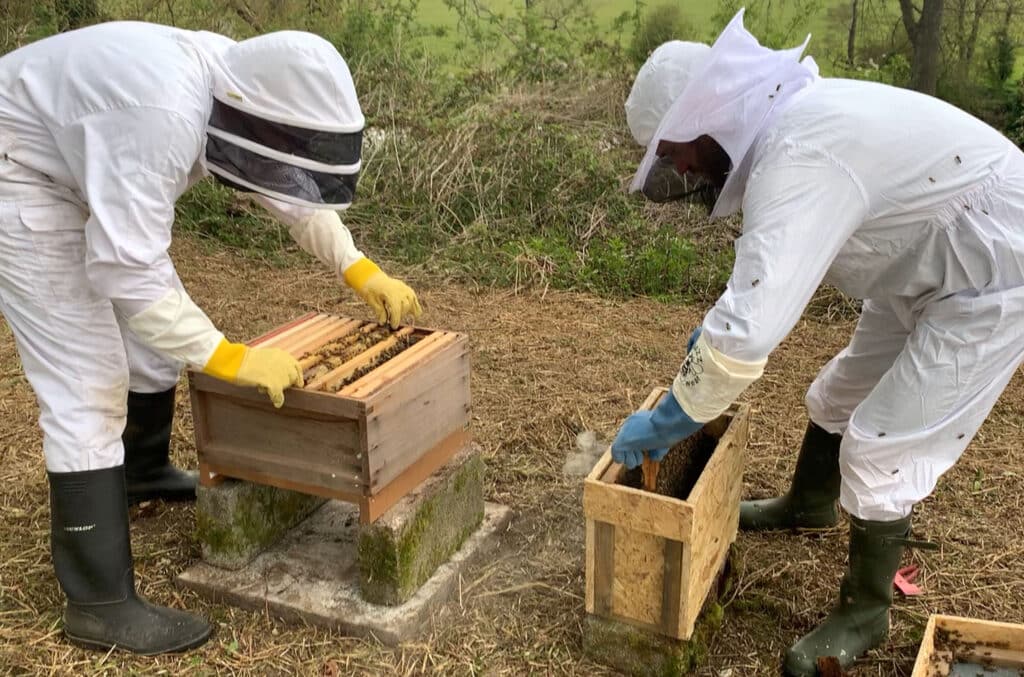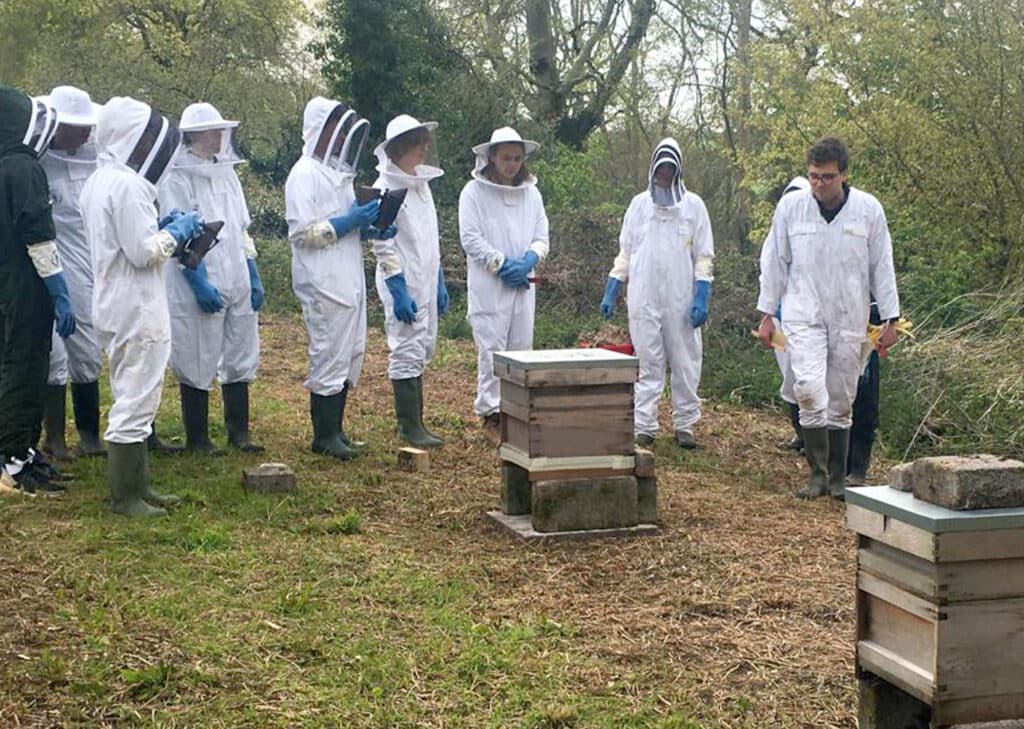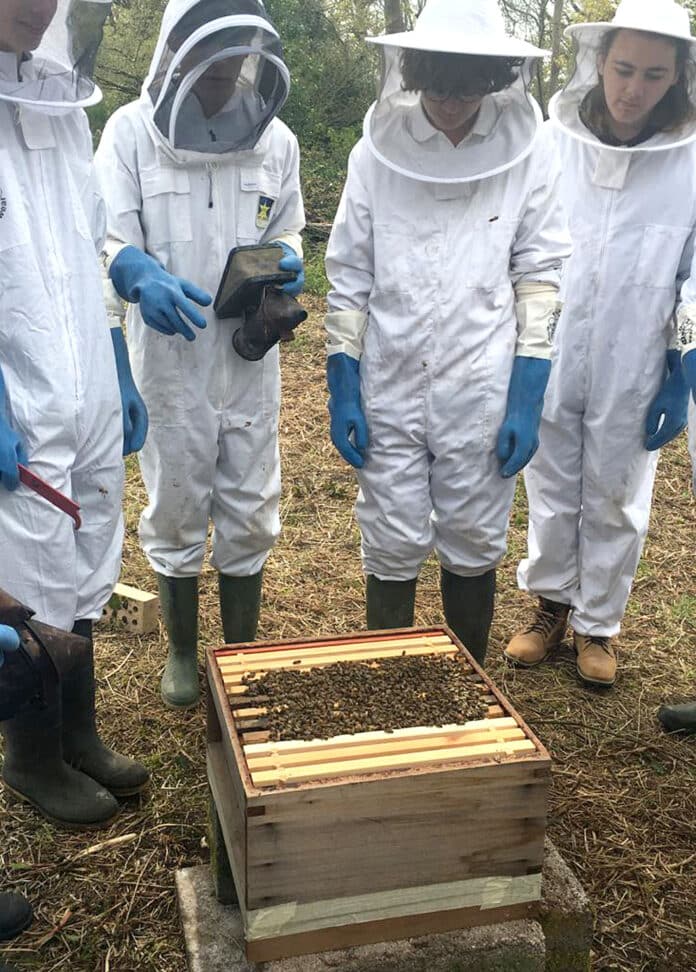Maintaining its reputation for offering a huge range of co-curricular activities, Bryanston has reintroduced honeybee colonies at the School to provide pupils with a fascinating insight into the world of beekeeping. The move has been overseen by Ben Pullan, Resident Teacher of Classics at the School and an experienced apiarist, and has benefitted from a special grant provided by the Bryanston Parents’ Association.

“When I joined the School last year, I quickly discovered that Bryanston had a long history of beekeeping,” says Pullan. “However, established colonies that were lost a few years ago weren’t replaced and our hives fell into disuse. As this has been a personal passion of mine since I was a youngster, there was an opportunity for me to use my skills to reintroduce beekeeping into our co-curricular programme. I am delighted the move has prompted a very enthusiastic response from so many pupils who are keen to see for themselves the fascinating and extraordinary lives of honeybees. Indeed, they know from their studies that these amazing insects play such an important role in local ecosystems but are under immense threat from pesticides, loss of habitat, parasites and fungal diseases.”
Two new and locally sourced bee colonies are now in hives positioned on a peaceful site in the School’s grounds near the river. Fifteen pupils are already taking part in the beekeeping activity on Friday afternoons as part of the Pioneering section of Bryanston’s broad co-curricular programme.

“Beekeeping is a completely new experience for me and it’s great to have the opportunity to see these miraculous little creatures up close as they go about their busy lives,” says pupil Alexander Lloyd-Elliott. “It’s certainly a real eye-opener.”
Sixth former Josie Leach says that handling bees is unlike anything she has ever done before. “It’s a wonderful experience and I’m so pleased to have the opportunity to take some time off my screen and away from my studies to gain a truly fascinating insight into such an important part of the natural world. Learning the skills of beekeeping also carries a real sense of responsibility and, of course, there is always the reward of honey which is pretty hard to beat!”
“At Bryanston, we recognise the importance of offering young people the chance to have a balanced education and live life to the full by exploring new activities and interests,” continues Pullan. “We offer more than 80 different co-curricular activities covering everything from juggling, mountain biking and salsa dancing through to science, jewellery making and archaeology… and everything in between! I’m delighted that, once again, the options include beekeeping as our aim is to inspire, engage and appeal to every child outside the classroom whatever their interests may be or could be. Certainly, my interest in beekeeping began at a very early age so it’s great to now have the opportunity to show today’s youngsters just how much intrigue and pleasure can be derived from such an activity. Who knows, we could even be inspiring the next generation of beekeepers!”
The School now hopes to revive a number of spin-off activities for pupils as a result of the reintroduction of honeybee colonies including candle-making and using honey in baking projects.
PLEASE SUPPORT US FOR JUST £2 A MONTH







